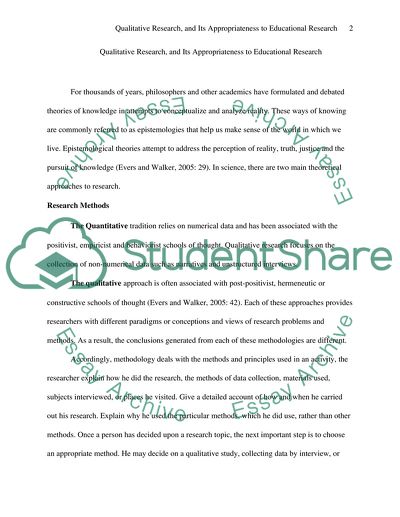Cite this document
(Qualitative Research, and Its Appropriateness to Educational Research Case Study, n.d.)
Qualitative Research, and Its Appropriateness to Educational Research Case Study. Retrieved from https://studentshare.org/education/1542816-define-qualitative-research-and-consider-its-appropriateness-to-your-own-educational-research
Qualitative Research, and Its Appropriateness to Educational Research Case Study. Retrieved from https://studentshare.org/education/1542816-define-qualitative-research-and-consider-its-appropriateness-to-your-own-educational-research
(Qualitative Research, and Its Appropriateness to Educational Research Case Study)
Qualitative Research, and Its Appropriateness to Educational Research Case Study. https://studentshare.org/education/1542816-define-qualitative-research-and-consider-its-appropriateness-to-your-own-educational-research.
Qualitative Research, and Its Appropriateness to Educational Research Case Study. https://studentshare.org/education/1542816-define-qualitative-research-and-consider-its-appropriateness-to-your-own-educational-research.
“Qualitative Research, and Its Appropriateness to Educational Research Case Study”. https://studentshare.org/education/1542816-define-qualitative-research-and-consider-its-appropriateness-to-your-own-educational-research.


